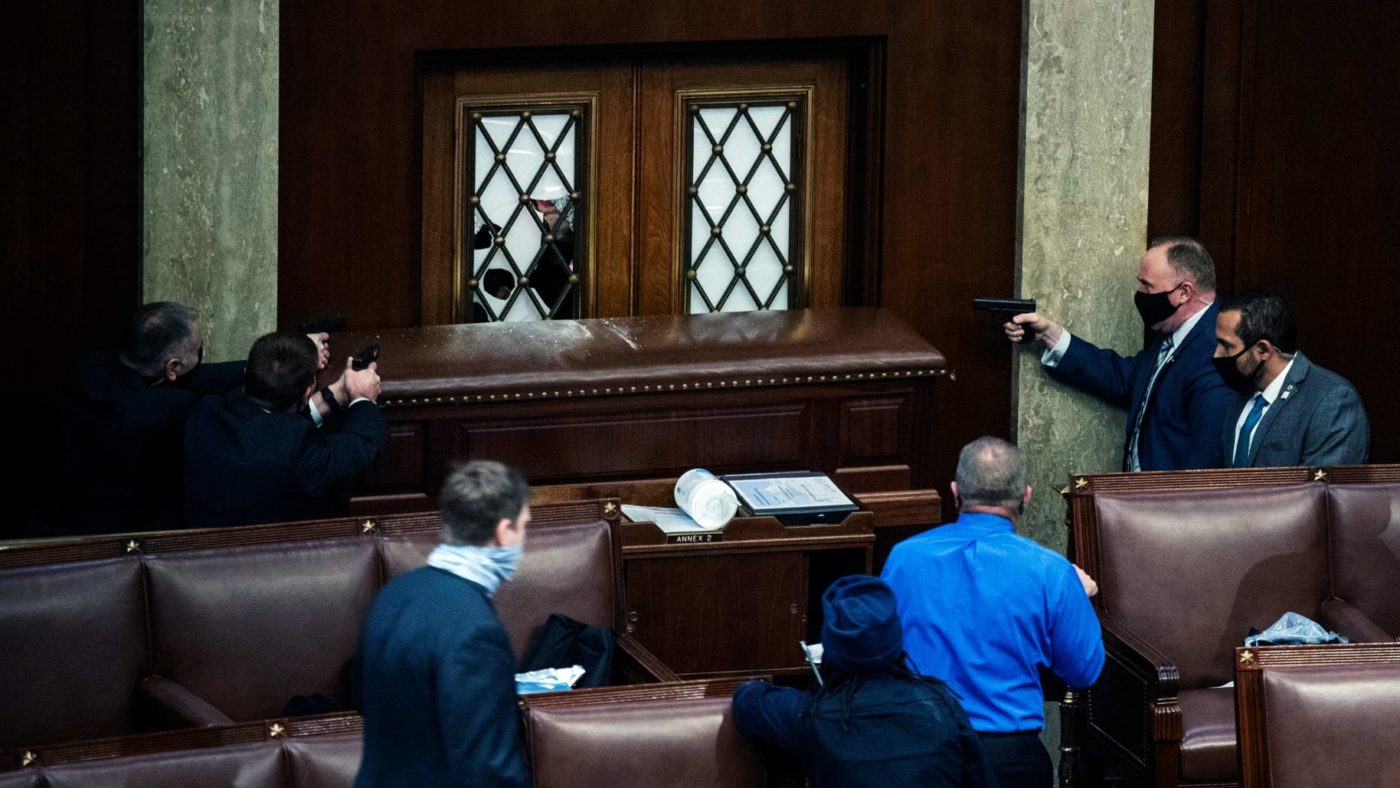The usual panoply of adjectives seems insufficient to describe yesterday’s events in the US capitol. Horrifying, deranged, surreal. None really conveys the sheer dread of seeing weapons drawn at the heart of America’s government, with four people now reported dead.
It may be a cliché, but it’s nonetheless true that tyrants from Moscow to Beijing will have surveyed the scenes in Washington with relish. What greater example of the decline of a great nation than a seditious mob storming the barricades with only the scantest resistance?
Meanwhile, with unerring predictability, some on these shores are already claiming that British politicians somehow ‘enabled’ all of this by not condemning Trump more vociferously over the last four years. There’s an almost charming parochialism to these claims, as if any hardened Trump supporter pays the slightest heed to what Boris Johnson, Dominic Raab or anyone else has to say about their domestic politics. This really has very little to do with Britain, however special we might think our relationship with the US.
If anyone thinks these people are ‘patriots’, just remember that they replaced the American flag on the Capitol with a Trump one. Their fealty is not to democracy, American ideals or any noble cause, but to an infantile TV personality more suited to a WWE ring than the corridors of power. Trump’s video from the White House lawn reiterating the usual conspiracy theories only reinforced his unfitness for the office.
But, some will argue, this was just the work of a lunatic fringe, a tiny minority which does not represent the majority of sensible, law-abiding Americans. Just two months ago the country voted clearly for a worthy, middle-of-the-road career politician, and that should be a reassuring focus amid the madness.
There’s some truth to that point, but it ignores two things.
First, that these ‘protesters’ were egged on from the highest echelons of American government, not just by the President himself, but by the many senior Republicans who have knowingly perpetuated his childish fantasies about November’s election. Second, that this mob does represent a vibrant, virulent strain of American political opinion. Just look at surveys that show one in five voters there supported the storming of the Capitol – a figure that rises to 45% among Republicans.
Nor should anyone kid themselves that what we saw yesterday was ‘shocking’. Rather, it was the end point of months of incitement and paranoia directed from the top, which started with armed Trump supporters intimidating election officials and ended with armed Trump supporters attacking the seat of government itself.
This also has far deeper roots though. As far back as 1964, Richard Hofstadter was writing about the mixture of “heated exaggeration, suspiciousness, and conspiratorial fantasy”, which he christened the “paranoid style in American politics”. Donald Trump was that paranoid style incarnate and yesterday’s roiling mass on the Mall its apogee. Of course, attempts at violent insurrection are not limited to one wing of American politics, as anyone who observed the excesses of the ‘antifa’ movement last year could point out.
And even when Trump departs the scene that paranoid style will find its expression elsewhere. There are plenty of would-be demagogues itching to step into Trump’s shoes, and the man himself is unlikely to go anywhere quickly.
Whatever his post-White House career, one thing is guaranteed, that Trump will go down as one of the worst presidents in his nation’s history. The critics who cast him as a threat to democracy have been proven emphatically right.
And though he is certainly to blame for yesterday’s violence, that may not even be the most damning indictment of the Trump presidency. Remember, after all, that all of this is happening at a time when thousands of Americans a day are dying due to the Covid pandemic. Since November, Trump has abdicated all responsibility for handling the crisis in order to pursue a fatuous fantasy. That should be his political epitaph: that he asked not what he could for his nation, but what his nation could do for him.
Click here to subscribe to our daily briefing – the best pieces from CapX and across the web.
CapX depends on the generosity of its readers. If you value what we do, please consider making a donation.


